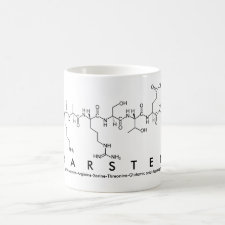
Authors: Mourão CA, Bokeloh F, Xu JJ, Prost E, Duma L, Merlier F, Bueno SMA, Haupt K, Tse Sum Bui B
Article Title: Dual-Oriented Solid-Phase Molecular Imprinting: Toward Selective Artificial Receptors for Recognition of Nucleotides in Water.
Publication date: 2017
Journal: Macromolecules
Volume: 50
Issue: (19)
Page numbers: 7484-7490.
DOI: 10.1021/acs.macromol.7b01782
Abstract: We describe the synthesis of water-soluble molecularly imprinted polymer nanoparticles (MIP-NPs) as a new artificial host receptor for the recognition of adenosine monophosphate (AMP), used herein, as a model nucleotide. MIP-NPs were prepared by solid-phase synthesis on glass beads (GB) using, for the first time, immobilized Fe(III)-chelate as an affinity ligand to orientate the AMP via its phosphate group. A polymerizable thymine monomer which can induce complementary base-pairing with the adenine moiety of the nucleotide was synthesized and incorporated in the polymerization mixture to constrain the AMP in a dual-orientated configuration. The MIP-NPs were remarkably selective toward AMP as they did not bind other nucleotides, GMP, UMP, and CMP. This strategy of using the phosphate group of AMP as a hinge enables unhindered pairing of the nucleobase with its corresponding complementary base monomer and can be extended to the preparation of specific MIP receptors for other key nucleotides in aqueous conditions
Template and target information: adenosine monophosphate, AMP



Join the Society for Molecular Imprinting

New items RSS feed
Sign-up for e-mail updates:
Choose between receiving an occasional newsletter or more frequent e-mail alerts.
Click here to go to the sign-up page.
Is your name elemental or peptidic? Enter your name and find out by clicking either of the buttons below!
Other products you may like:
 MIPdatabase
MIPdatabase









